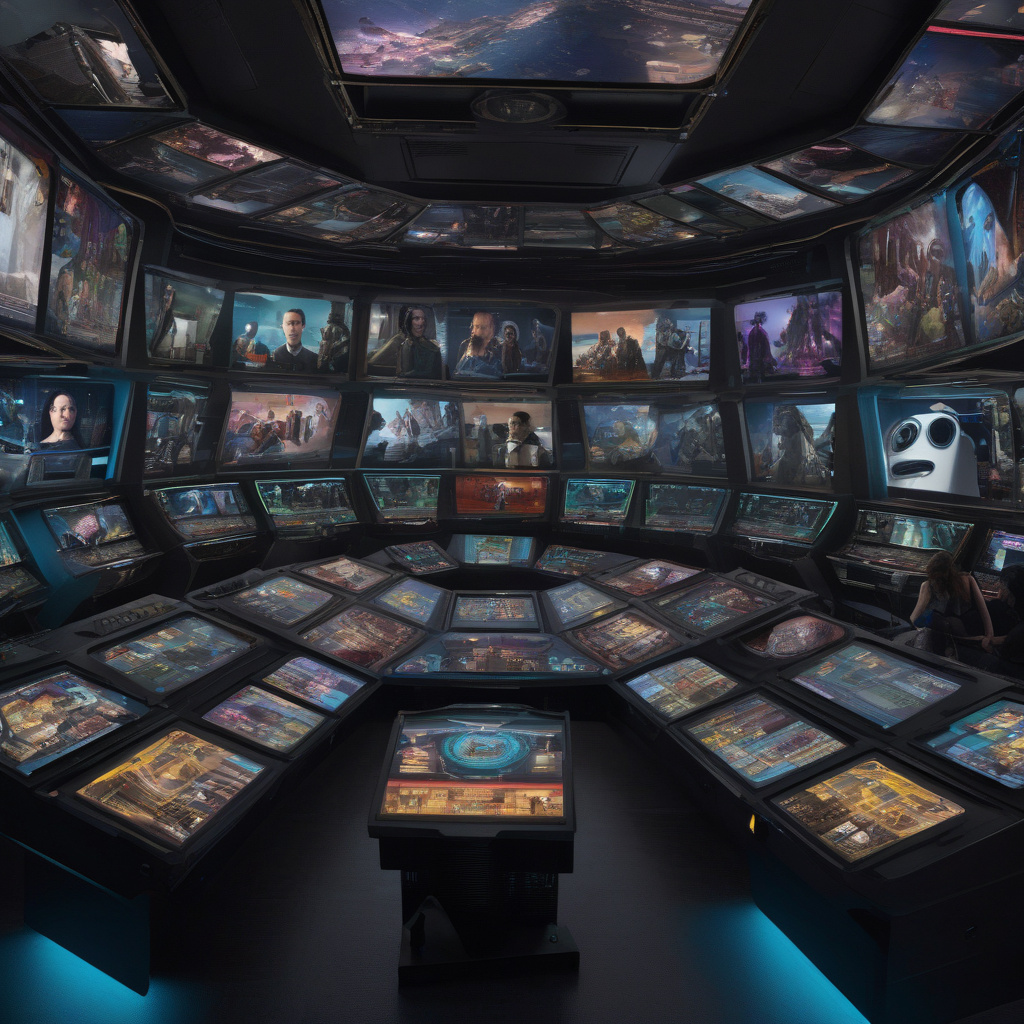The Influence of AI in Hollywood, Gaming, and Music
In recent years, artificial intelligence (AI) has emerged as a powerful tool reshaping the way stories are told in various forms of entertainment, including film, games, and music. This technological advancement has not only revolutionized the creative process but has also sparked debates surrounding authorship, ethics, and artistic identity in these industries.
In Hollywood, AI is being utilized to analyze massive amounts of data to predict the success of potential film projects. By analyzing audience preferences, historical data, and even social media trends, AI algorithms can provide valuable insights to filmmakers and studios, helping them make more informed decisions about which projects to pursue. For example, script analysis tools like ScriptBook can evaluate the commercial prospects of a screenplay by assessing its storyline, characters, and even the potential audience reception. This data-driven approach to filmmaking is changing the way movies are greenlit, produced, and marketed.
Moreover, AI is also being used in the post-production phase to streamline tasks such as video editing, color correction, and even the creation of visual effects. Machine learning algorithms can analyze hours of footage to identify the best takes, suggest editing cuts, and enhance scenes with CGI, saving filmmakers time and resources. This not only accelerates the production process but also allows for more experimentation and creative exploration.
In the gaming industry, AI is transforming the way games are developed, played, and experienced. Game developers are leveraging AI to create more immersive and personalized gaming experiences for players. For instance, AI-powered algorithms can adapt the game difficulty based on the player’s skill level, behavior, and preferences, providing a more tailored and engaging gameplay experience. Additionally, AI can be used to generate in-game content, such as levels, characters, and narratives, allowing for endless possibilities and replay value.
AI is also revolutionizing the music industry by enabling artists to explore new creative avenues and push the boundaries of sound. From AI-generated music compositions to virtual AI-powered band members, musicians are incorporating artificial intelligence into their creative process to experiment with innovative sounds and styles. For example, the AI music composition tool Aiva can generate original classical music pieces in the style of Mozart or Beethoven, showcasing the potential of AI to collaborate with human artists and redefine musical expression.
Despite the numerous benefits AI brings to the entertainment industry, its widespread adoption raises important questions about authorship, ethics, and artistic identity. As AI becomes more involved in the creative process, who should be credited as the author of a work: the human artist, the AI algorithm, or both? Furthermore, the use of AI in storytelling raises ethical concerns regarding data privacy, bias, and the potential manipulation of audience emotions.
In conclusion, the rise of AI in Hollywood, gaming, and music is transforming the way stories are told and experiences are created in these industries. While AI offers unprecedented opportunities for innovation and efficiency, it also presents challenges that must be carefully navigated to uphold the integrity and authenticity of creative expression.
AI is reshaping how stories are told in film, games, and music, raising questions about authorship, ethics, and artistic identity. Hollywood, Gaming, Music, Artificial Intelligence, Creative Expression
